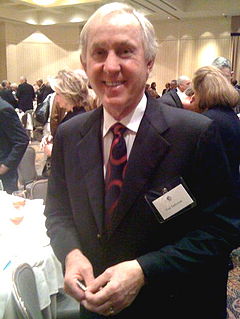A Quote by John C. Maxwell
You are the only person who can label what you do a failure. Failure is subjective.
Quote Topics
Related Quotes
What can you or I do? Alone, almost nothing. Yet one person - you alone - can make the difference. . . . The failure of just one person to join, to participate, to do whatever he or she can - your failure or my failure - may mean that there is just one too few to win the fight for sanity, and so leave the world on the road to destruction. Each of us, all of us, must do what we can.
The Great Depression was not a sign of the failure of monetary policy or a result of the failure of the market system as was widely interpreted. It was instead a consequence of a very serious government failure, in particular a failure in the monetary authorities to do what they'd initially been set up to do.
Failure's relative. I've always felt, even early on, if I lose the freedom to fail, something's not right about that. It's how you treat failure, too. There's something to learn from it. I've had movies that have failed colossally, so you kind of analyze your failures: What kind of failure was it? A failure because it's misunderstood by others? A failure because you misunderstood it yourself?
Nothing fails like success, because we do not learn anything from it. We only learn from failure, but we do not always learn the right things from failure. If there is a failure of expectations, that is, if the messages that we receive are not the same as those we expected, we can make three possible inferences.






































